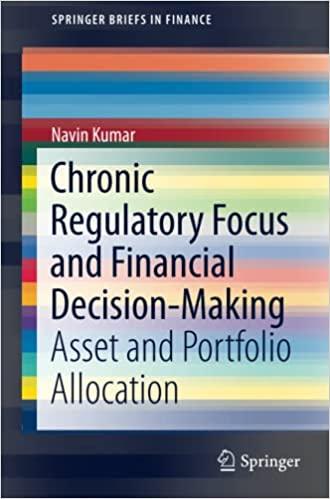Question
13. Suppose a company has two mutually exclusive projects, both of which are three years in length. Project A has an initial outlay of $8,000
13. Suppose a company has two mutually exclusive projects, both of which are three years in length. Project A has an initial outlay of $8,000 and has expected cash flows of $2,000 in year 1, $4,000 in year 2, and $5,000 in year 3. Project B has an initial outlay of $8,000 and has expected cash flows of $2,000 in year 1, $4,000 in year 2, and $6,000 in year 3. The required rate of return is 13% for projects at this company. What is the net present value for the best project? (Answer to the nearest dollar.)
12. Suppose a company has proposed a new 4-year project. The project has an initial outlay of $26,000 and has expected cash flows of $6,000 in year 1, $9,000 in year 2, $10,000 in year 3, and $14,000 in year 4. The required rate of return is 11% for projects at this company. What is the net present value for this project? (Answer to the nearest dollar.)
11.
Suppose a company has proposed a new 4-year project. The project has an initial outlay of $64,000 and has expected cash flows of $18,000 in year 1, $25,000 in year 2, $29,000 in year 3, and $35,000 in year 4. The required rate of return is 11% for projects at this company. What is the discounted payback for this project? (Answer to the nearest tenth of a year, e.g. 3.2)
Step by Step Solution
There are 3 Steps involved in it
Step: 1

Get Instant Access to Expert-Tailored Solutions
See step-by-step solutions with expert insights and AI powered tools for academic success
Step: 2

Step: 3

Ace Your Homework with AI
Get the answers you need in no time with our AI-driven, step-by-step assistance
Get Started


